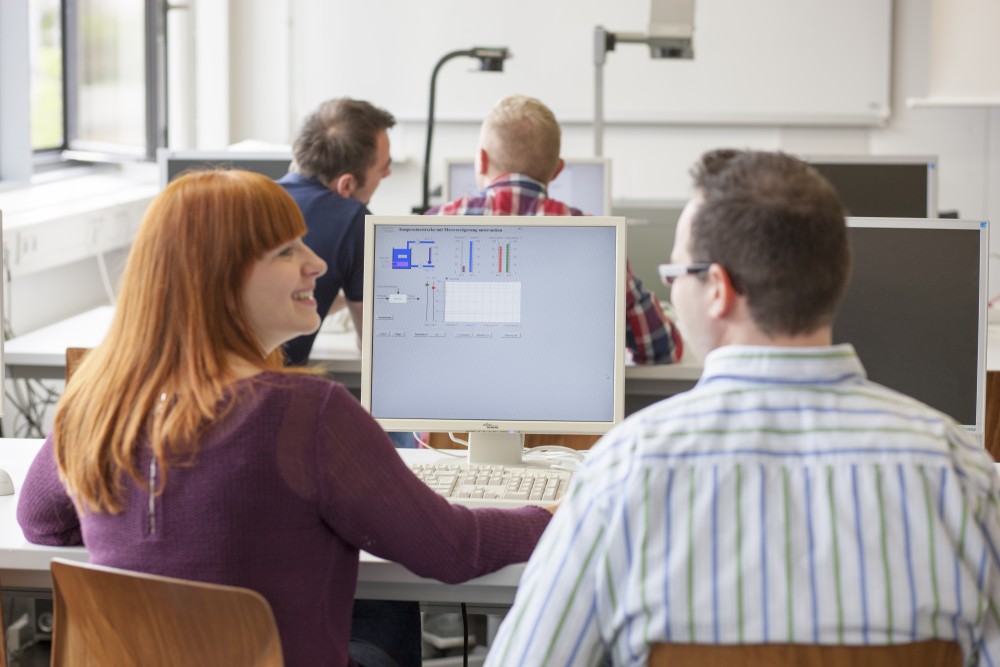The control of material flows in production quickly becomes a complex system that is difficult to calculate as the volume increases. This is where appropriate simulation tools can help.
Knowledge of calculations and their transfer to suitable simulation tools is an important skill for students of traffic and transport engineering. In a practical, case-based project, students gradually approach the complex topics and requirements.
After an introduction to the available simulation software in the 6th semester of the Bachelor's degree programme and in the 1st semester of the Master's degree programme, the working groups are given a case study that is equipped with the necessary data (specifications, set-up times, etc.).
Initial calculations and planning are first carried out in Excel. The resulting production plan is discussed with teachers and presented to all participants.
The next steps are the transfer to the simulation software and finally the testing of the simulation of the production plan.
The next step is to ensure and demonstrate the plan's resilience to crises. For this purpose, typical errors such as malfunctions and machine failures are built in, to which the students must react by adapting their plan.
Different variants can be tested in the process. Different approaches can also be pursued in the final translation into a Kanban control system.
Both the developed model and the final presentation serve as the basis for evaluating the student project. The criteria for this have already been defined and communicated in advance.



